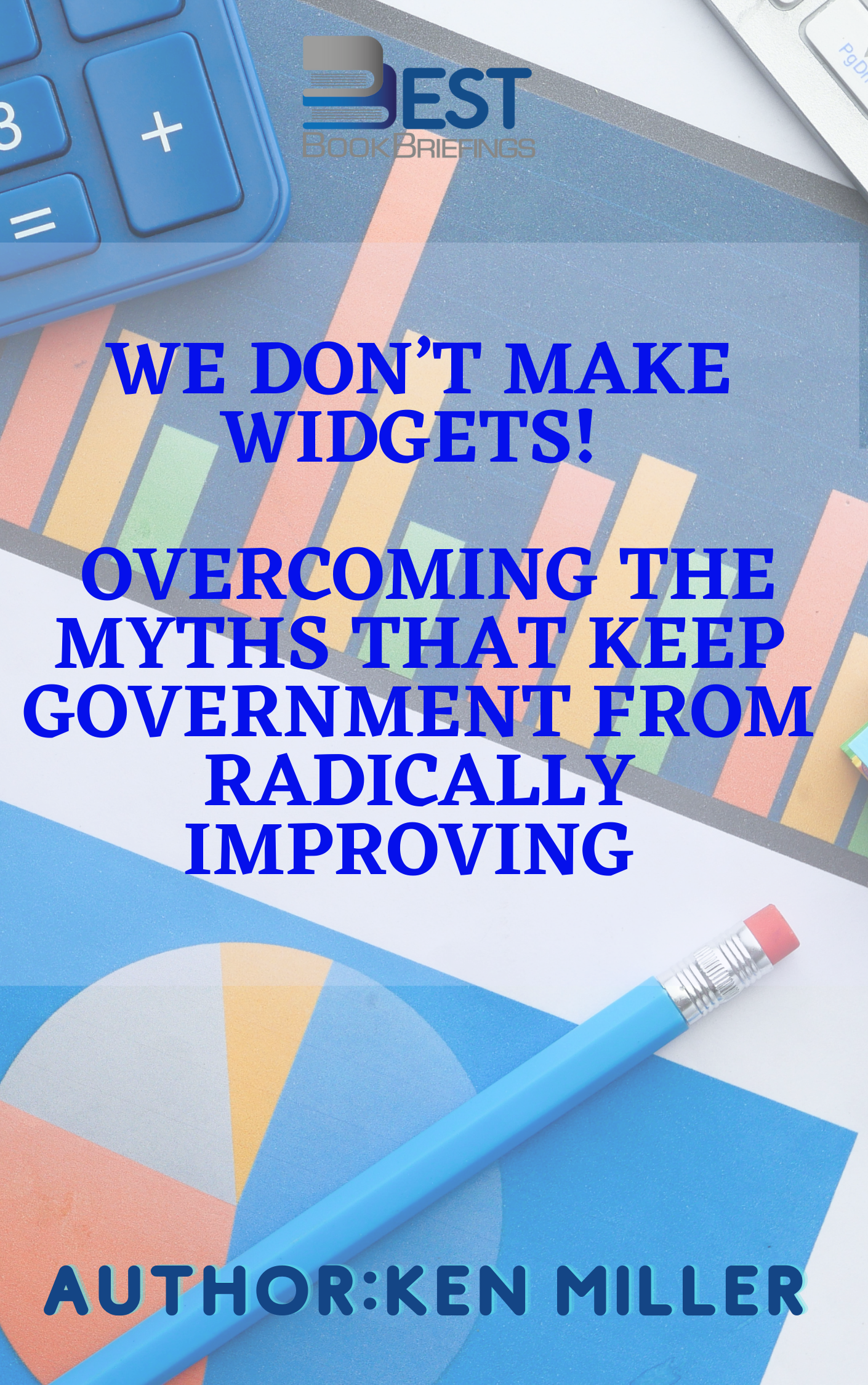We Don’t Make Widgets
Overcoming the Myths that Keep Government From Radically Improving
Number of pages: 124
Publisher: Governing Books
BBB Library: Politics and Public Affairs
ISBN: 978-0872894808
Editorial Review
What we believe about government—that we don’t make widgets, that we don’t have customers, and that we’re not here to make a profit—all feed the bigger myth: that we’re different. We Don’t Make Widgets explodes the myths that prevent dramatic improvement in government operations. The aim of this book is to improve the government radically through changing the beliefs of those who run it – the managers. If you’re a manager and you are interested in a new way of thinking about what you do, who you do it for and why you do it, this book is for you.
Book Reviews
Books on Related Topics

Why do some societies manage to control corruption so that it manifests itself only occasionally, while other societies remain systemically corrupt? This book is about how societies reach that point when integrity becomes the norm and corruption the exception in regard to how public affairs are run and public resources are

This book lays out an impressive, well-articulated set of trends that have affected or will soon affect local governments throughout the nation through technology. Amazingly, as Dr. Shark points out, all of this massive change has occurred within the past 12 years. While technology trends continue to play out in the

Any chief executive whose ship is sinking, with the lights dimming and music fading, is likely to ask, “How did this happen? How did I allow myself and my company to end up like this?” Directors of once great companies also find themselves asking similar questions. “Did I and my fellow



